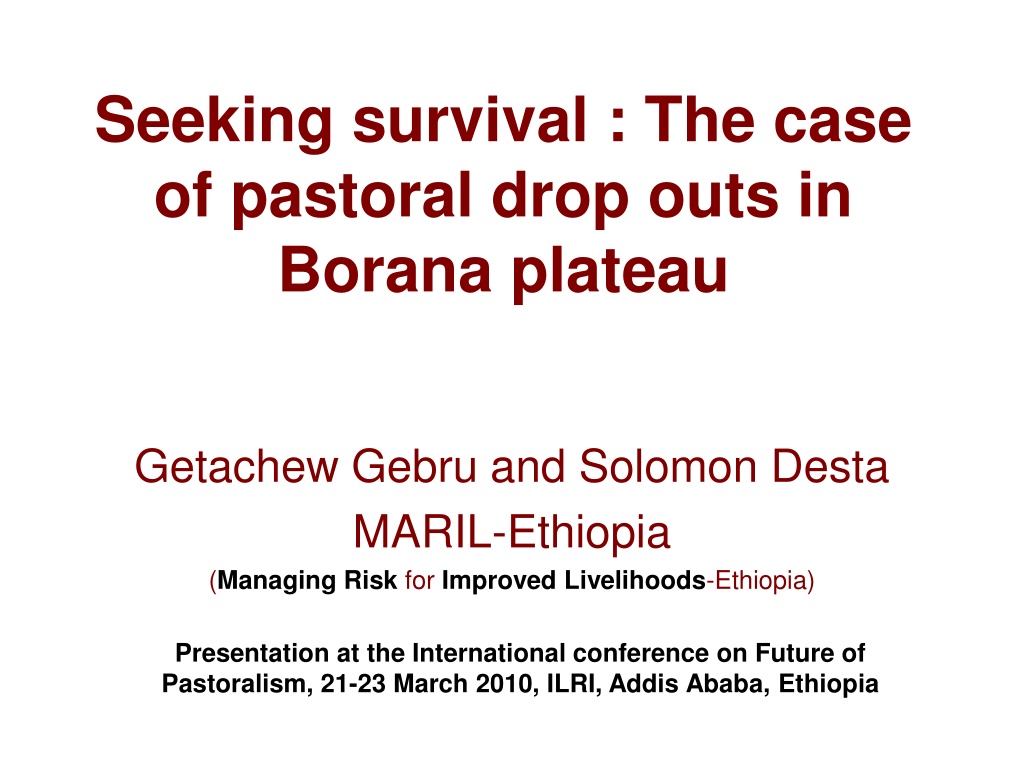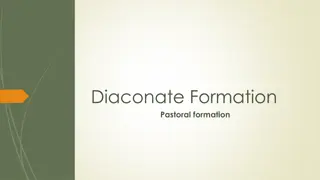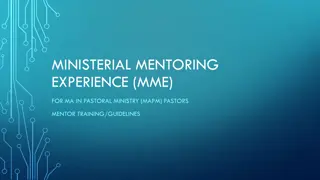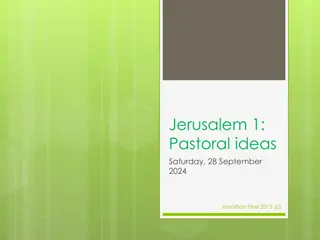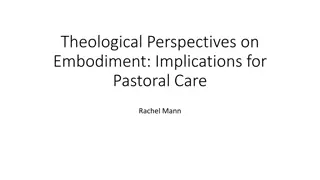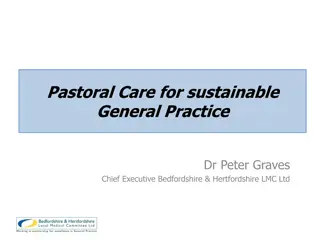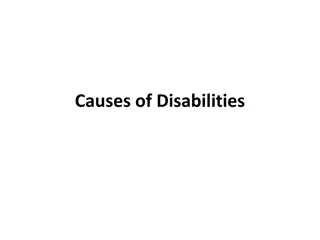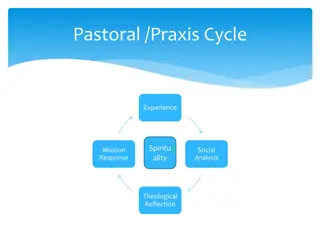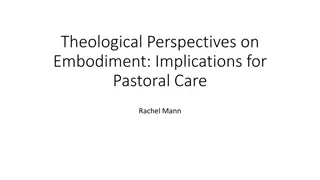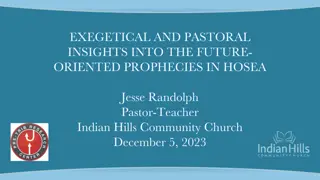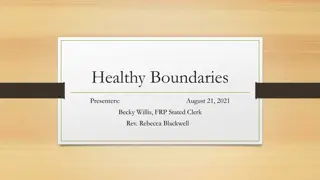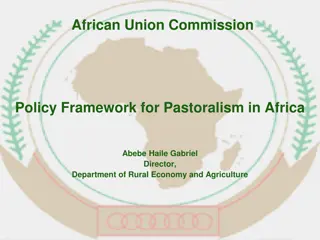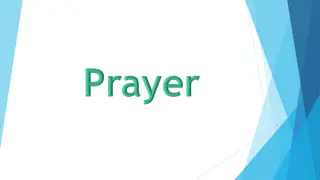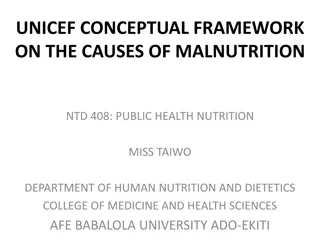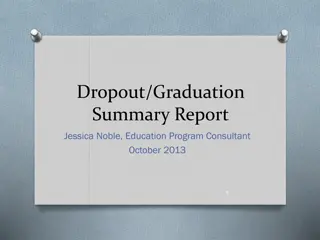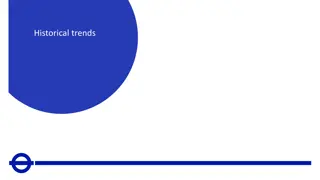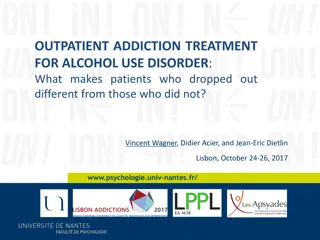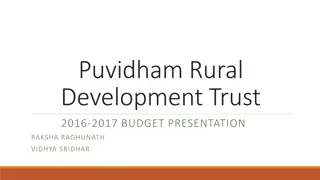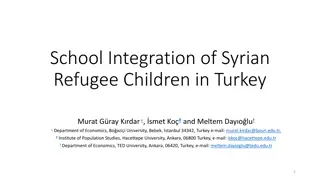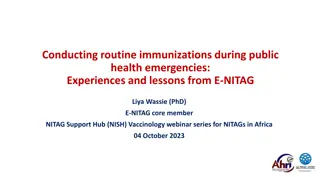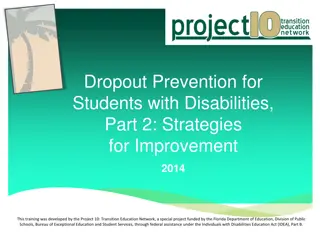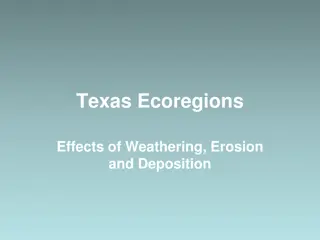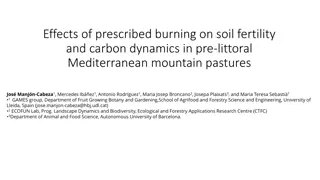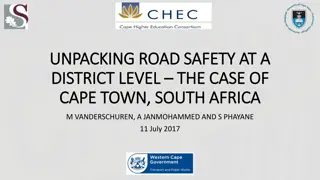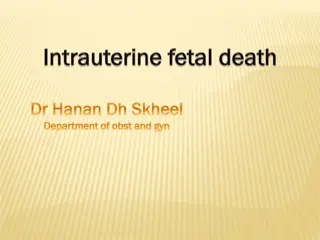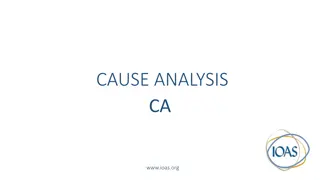Understanding Pastoral Dropouts in Borana Plateau: Causes and Recommendations
This study delves into the factors leading to pastoralists leaving their traditional livelihoods in Borana Plateau and explores their current livelihood strategies. Through key informant interviews and focus group discussions, the research identifies definitions, perceptions, and vulnerable groups within the pastoral community. Recommendations aim to support those who have exited the pastoral system.
Download Presentation

Please find below an Image/Link to download the presentation.
The content on the website is provided AS IS for your information and personal use only. It may not be sold, licensed, or shared on other websites without obtaining consent from the author. Download presentation by click this link. If you encounter any issues during the download, it is possible that the publisher has removed the file from their server.
E N D
Presentation Transcript
Seeking survival : The case of pastoral drop outs in Borana plateau Getachew Gebru and Solomon Desta MARIL-Ethiopia (Managing Risk for Improved Livelihoods-Ethiopia) Presentation at the International conference on Future of Pastoralism, 21-23 March 2010, ILRI, Addis Ababa, Ethiopia
OBJECTIVE OF THE STUDY Assess causes that drive pastoralist out of the pastoral livelihood system; Explore current livelihoods of those exiting the pastoral system; and Recommend options to support pastoral drop outs
METHODOLOGY Study weredas Yabello, Dire (Dubluk) and Moyale Key Informant Interview in three weredas Information gathered through KI revealed the geographical distribution, attraction points and concentration areas of dropouts Guided focus areas for further investigations of the case through FGD and household survey
METHODOLOGY Focus Group Discussion PAs historically and currently known as point of attraction and concentration for dropouts in Yabello, Dire (Dubluk) and Moyale (0-20km from town or market centers) considered for the FGD
RESULTS from KI and FGD Definitions and perceptions Causes/factors/why/how/ Livelihood strategies/what/how/challenges Vulnerability/who/why/ Traditional Safety nets/effectiveness/how much pressurized Trend Recommendations
DEFINITION/PERCEPTIONS A dropout (Eltama) is a person who lost his primary source of wealth, his animals and driven out of the pastoral livelihood system unwillingly and settled either in rural, urban, periurban areas or markets centers, in search of non-pastoral options to make a living. Such a person can be detached completely from pastoralism or maintain a very loose connection
DEFINITION/PERCEPTIONS Qolle is a stockless person who lives within the pastoral community and maintains some involvement in pastoral activities. Qolles may ultimately end up as dropouts unless they are restocked by the traditional safety net in a reasonably good time Dega is a very poor pastoralist with very few animals. A dega can easily become a qolle following a small shock and dropout of the system.
DEFINITION/PERCEPTIONS Qolles and degas are not considered as drop-outs although they don t have adequate number of livestock to live as an independent pastoralist Qolles, degas and dropouts share lots of commonalities in livelihood strategies, challenges they face to make a living, vulnerability to shocks, etc
FACTORS THAT CAUSE DROPOUT Key reasons: Drought War/conflict and livestock raiding Large family size and poverty Animal disease epidemics Mismanagement of own herd (referred to as okkoteen dhabe )
LIVELIHOOD STRATEGIES Drop-outs pursue different livelihood strategies which are less preferred and considered inferior in terms of income generation and social status. These include: Firewood collection, charcoal making, supply of construction wood to towns, local alcohol making, passing contraband items, petty trading, a variety of causal labor services, herding and trekking animals for traders; housemaid, watchman, washing closes for urban people, brokering farming, getting closer to food aid, gold mining in Guji, etc. Livelihood strategies for dropouts is gendered, with men doing brokering, trekking, farming, and women, fuel wood collection, passing contraband goods, local berwery, housemaid, etc.
SOCIAL RELATIONS Successful dropout regain lost social status otherwise he is considered as a weak person who ran away from his own community but never became a better person. Dropouts who left their household members behind in the locality try to maintain their relation with their original community. Singles who fled from the system often remain completely detached from their roots.
ADAPTATION The FGD participants indicated that it is difficult to move from one livelihood strategy to a new one Joining and assimilating to a new social group and a new environment is a difficult task. Having prior knowledge about the environment is helpful to establish and to withstand the challenge.
VULNERABILITY Poor pastoralists (qolle and dega), are the most vulnerable group to dropout Although poor households are more susceptible to become dropouts, FGD and KI participants disagree about the intergenerational aspect of poverty
TRADITIONAL SOCIAL SAFETY NET According to the KI and FGD: Bussa Gonofa still exists, functional and important to maintain the peace and existence of Borana BG and other traditional safety nets have been overburdened by the magnitude of the current problem and can t support everybody to re-establish Takes quite long time before one receives the contribution Contribution not adequate to sustain livelihood as a pastoralist These days people prefer to look for other income generating alternatives than claiming for BG and wait until they die.
TREND Number of people leaving the system as dropouts is on the rise; number of qolles and degas increasing Dropouts returning to pastoralism, or improving their well being from their new livelihood strategies are none qolles or degas recovering and moving to a higher wealth group is a very rare case. They are becoming more vulnerable.
TREND Dropouts and qolles or degas used to be seen positively, but as their number swell up they are becoming burden to the safety net, and are viewed negatively BG and other social safety nets still exist to help the poor and stockless, but not any more effective as they are de-capacitated by recurrent drought and conflict
RECOMMENDATIONS FGD and KI participants indicated major external support interventions required to rehabilitate and improve the livelihood conditions of pastoral drop-outs,Qolles or degas. These include: Food aid (a temporary solution to save lives) Settlement where there is more space for cultivation with full extension package Saving and credit services to support petty trading and other small business
RECOMMENDATIONS Create opportunity for wage labor in urban and rural areas Skill development to make them marketable, Restocking for those who want to return to pastoralism (needs careful targeting) Return conflict induced dropouts to their place of origin and assist them to build peace and co-exist Integrated pastoral development with conflict management as a major component
CONCLUSION There is a need to look more outside of pastoral areas for economic opportunities. Safety nets might simply encourage people to stay in areas where the long-term economic spaces are limited or already occupied. Conventional development approach that assumes homogeneity of livelihood strategies for people who live in pastoral areas is not responsive enough
ACKNOWLEDGEMENT USAID supported CARE Ethiopia PLI I program for supporting the study Pastoral communities engaged in the study
